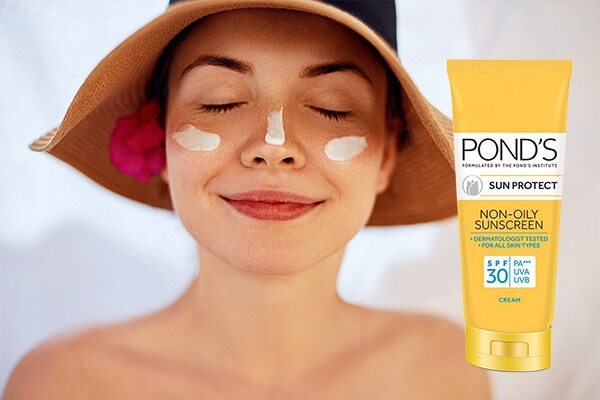I scream, you scream, we all scream... SUNSCREEN! Sunscreen is the most essential part of your skincare routine, hands down! Whether it is sunny, gloomy or snowy outdoors, stepping out without slathering enough sunscreen is the biggest skin sin you'd ever be committing. Your skin needs sun protection all through the year, therefore, investing in the right sunscreen is of utmost importance. From knowing what ingredients to avoid in sunscreen to the SPF number you must ideally go for, here are five things you need to consider while choosing a sunscreen. Trust us, the product won't disappoint you then!
01#1: Read the date of manufacture carefully

While you're obviously not going to buy an expired product, it is also important that you pick a sunscreen from the fresh stock. You'll be surprised to know that the fresher the sunscreen, the better the efficacy of the product. The ingredients present in a sunscreen break down easily, even when it's just lying in the shelf. It is, therefore, ideal to pick from the freshest stock, and make sure you use up the entire tube or bottle before moving onto the next, to avoid stocking up on a product till its expiry.
02#2: Invest in a sunscreen with SPF 30 or more

UVA rays cause concerns such as tanning and premature ageing, whereas UVB rays lead to a more serious condition such as skin cancer. The SPF number on your sunscreen tells you how long the sun's UV radiation would take to redden your skin. For example, if your sunscreen has SPF 30, then it would ideally take your skin 30 times longer to burn than if you weren't wearing any sunscreen. While SPF 30 allows about 3 per cent of UVB rays to hit your skin, SPF 50 allows about 2 per cent of those rays through. It is, therefore, ideal to purchase a sunscreen with higher SPF such as the Ponds Sun Protect Non-Oily Sunscreen SPF 50.
03#3: Avoid using sunscreen sprays

Sunscreens in the form of gels, creams and lotions can be your best bet. However, using sunscreen sprays are a strict no-no. Sunscreen sprays lead to a lot of product wastage and at the same time, the chances of you inhaling the mist are higher. While sunscreen sprays go on easily enough, it is harder to know if you've applied an adequate amount. Instead, what you can do is use sunscreen sprays on beach holidays. Slather enough sunscreen lotion or cream before leaving the house and then layer on top with spray while at the beach.
04#4: Check the presence of titanium dioxide or zinc oxide

Titanium dioxide and zinc oxide minerals are infused in sunscreens as inorganic physical sun blockers. While these ingredients are added to the product for UV protection, they can be harmful to the skin. If you've ever noticed that your face looks pale or ghostly after applying sunscreen, it is due to the presence of zinc oxide in the product. Therefore, check the ingredients on the packaging before purchasing the sunscreen.
05#5: Pick water-based sunscreens if you have oily, acne-prone skin

Here's a life-saving tip for all those with oily, acne-prone skin. While you cannot skip sunscreen altogether just because you have oily skin, it is important to know what formula to use for your skin type. To keep excess oiliness at bay, invest in a water-based sunscreen instead of an oil-based one. A water-based sunscreen is lightweight and won't cause your skin to break out. Plus, it will feel light on your skin.








